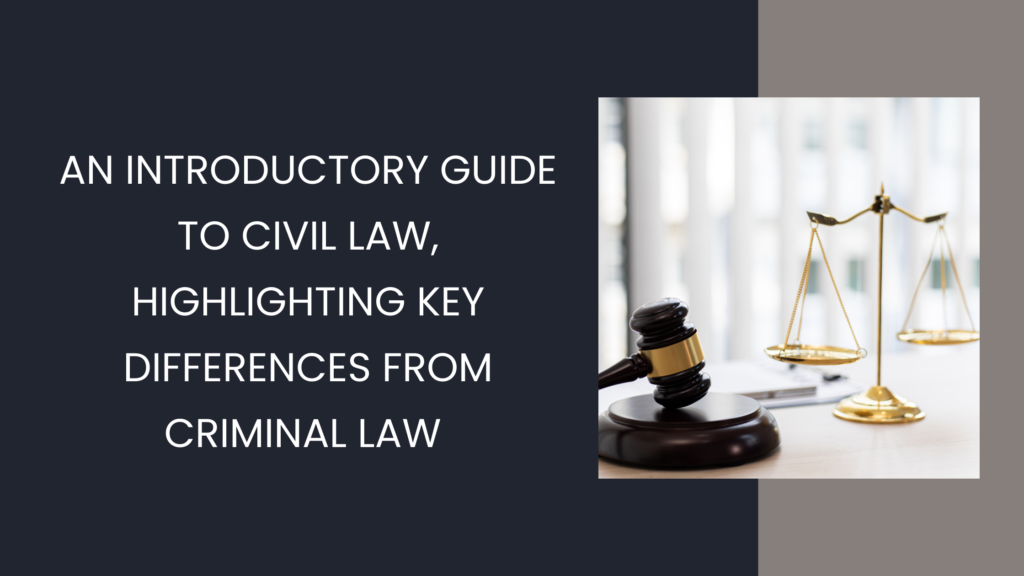What is Civil Law?
Civil law encompasses the body of laws that deal with disputes between individuals, organizations, or between individuals and organizations, where compensation or specific performance is sought. These disputes typically involve private rights and obligations rather than public offenses.
Common areas of civil law include:
- Contracts: Disputes over the terms and performance of agreements between parties.
- Torts: Claims involving civil wrongs, such as negligence or defamation, that result in harm or injury to individuals.
- Property: Issues related to ownership, use, and transfer of property.
- Family Law: Matters such as divorce, child custody, and support.
The primary goal of civil law is to resolve disputes and provide remedies for breaches of legal duties. These remedies can be monetary compensation or specific actions mandated by the court.
What is Criminal Law?
Criminal law, on the other hand, deals with actions that are considered offenses against the state or society as a whole. These offenses are punishable by penalties such as imprisonment, fines, or community service.
Criminal law covers:
- Felonies: Serious crimes such as murder, rape, and robbery.
- Misdemeanors: Lesser offenses like petty theft, vandalism, or minor drug possession.
- Infractions: Minor violations such as traffic tickets or jaywalking.
The primary purpose of criminal law is to maintain public order and punish offenders to deter criminal behavior. In criminal cases, the state, represented by a prosecutor, brings charges against the accused.
Key Differences Between Civil and Criminal Law
- Parties Involved:
- Civil Law: The parties are private individuals or organizations. The person bringing the case is called the plaintiff, and the person being sued is the defendant.
- Criminal Law: The state or government is the prosecutor, and the person charged with the offense is the defendant.
- Burden of Proof:
- Civil Law: The burden of proof is “preponderance of the evidence,” meaning the plaintiff must prove that it is more likely than not that the defendant is liable.
- Criminal Law: The burden of proof is “beyond a reasonable doubt,” which is a higher standard requiring the prosecutor to prove the defendant’s guilt with a high degree of certainty.
- Outcome:
- Civil Law: The outcome typically involves monetary damages or specific performance to resolve the dispute. The goal is to compensate the injured party or enforce rights.
- Criminal Law: The outcome can result in penalties such as imprisonment, fines, or community service. The goal is to punish the offender and deter criminal conduct.
- Legal Process:
- Civil Law: Cases are generally initiated by the plaintiff filing a complaint. The process includes discovery, pre-trial motions, and potentially a trial.
- Criminal Law: Cases are initiated by the state filing charges. The process involves investigation, arrest, arraignment, and possibly a trial.
- Rights of the Parties:
- Civil Law: Both parties have the right to legal representation, but the right to a lawyer is not guaranteed for the defendant.
- Criminal Law: Defendants have constitutional rights, including the right to an attorney and the right to remain silent, as well as protection against self-incrimination.


